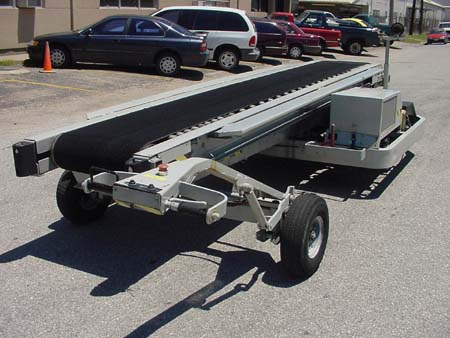The Future of Belt Loaders: Trends and Developments in Ground Support Equipment
 Ground support equipment (GSE) plays a crucial role in ensuring smooth operations within airports, facilitating the efficient movement of baggage, cargo, and passengers. Belt loaders are indispensable tools for loading and unloading luggage onto aircraft. As technology advances and industries evolve, it’s essential to explore the future of belt loaders, understanding the trends and developments shaping their trajectory.
Ground support equipment (GSE) plays a crucial role in ensuring smooth operations within airports, facilitating the efficient movement of baggage, cargo, and passengers. Belt loaders are indispensable tools for loading and unloading luggage onto aircraft. As technology advances and industries evolve, it’s essential to explore the future of belt loaders, understanding the trends and developments shaping their trajectory.
Automation Revolution: One of the most significant trends impacting belt loaders is the advent of automation. With robotics and artificial intelligence advancements, we’re witnessing a shift towards autonomous belt loaders. By navigating the airport environment and loading and unloading luggage without human intervention, these next-generation loaders improve operational efficiency and lower the risk of accidents. Manufacturers are investing in sensor technology and machine learning algorithms to develop intelligent belt loaders capable of adapting to dynamic environments while prioritizing safety and accuracy.
Sustainable Solutions: In an era increasingly focused on sustainability, the aviation industry seeks eco-friendly alternatives for ground support equipment, including belt loaders. Producers are trying to reduce carbon emissions and their environmental impact by looking into new materials and propulsion systems. Due to their quieter operation and reduced fuel consumption compared to conventional diesel-powered models, electric and hybrid belt loaders are becoming increasingly popular. Furthermore, incorporating sustainable elements like solar panels could improve belt loaders’ environmental friendliness without sacrificing functionality.
Ergonomic Design: Worker safety and comfort are paramount concerns in the design of belt loaders. As such, future developments are centred around ergonomic design principles aimed at reducing operator strain and fatigue. Adjustable height controls, improved cabin layouts, and enhanced visibility features are becoming standard in modern belt loaders, ensuring operators can work while minimizing the risk of musculoskeletal injuries. Furthermore, incorporating advanced ergonomics can improve overall productivity and employee satisfaction, making it a crucial focus area for manufacturers.
Connectivity and Data Analytics: The integration of connectivity and data analytics is revolutionizing how belt loaders are monitored and managed. IoT-enabled sensors embedded within loaders provide real-time data on performance metrics, maintenance requirements, and operational efficiency. This data can be analyzed to optimize workflows, predict maintenance issues before they occur, and identify areas for improvement. Moreover, connectivity allows for remote monitoring and diagnostics, enabling proactive maintenance and minimizing downtime. By harnessing the power of data, airlines and ground handling companies can enhance reliability, reduce costs, and improve the overall passenger experience.
Adaptability and Modular Design: Flexibility is key in a rapidly evolving industry. Manufacturers are adopting modular design concepts, which enable belt loaders to be more customized and adaptable to meet the unique requirements of various airports and airlines. Modular components allow easy upgrades, retrofitting, and scalability, ensuring that belt loaders can evolve alongside changing operational requirements. This versatility not only future-proofs investments but also promotes sustainability by extending the lifespan of equipment through incremental improvements and updates.
The future of belt loaders is poised for innovation, driven by advancements in automation, sustainability, ergonomics, connectivity, and adaptability. As the aviation industry evolves, stakeholders must embrace these trends to enhance efficiency, reduce environmental impact, and improve the overall passenger experience. By investing in cutting-edge technologies and adopting a forward-thinking approach, the next generation of belt loaders, exemplified by brands like JETALL, will play a vital role in shaping the future of ground support operations worldwide.
